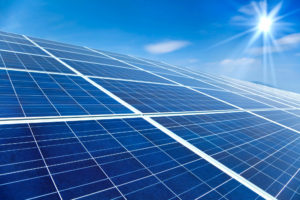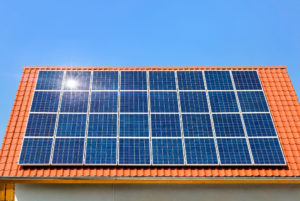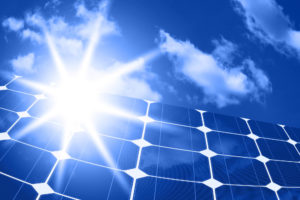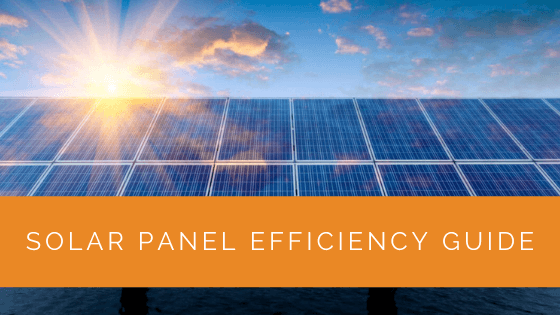Today, renewable energy is more popular than ever before. Solar panels have become a product for both home and business owners throughout the US.
Most people find it hard to choose the right solar panels that will serve their needs. Questions such as solar panel ratings, solar cell efficiency, and durability often pop up.
Contents
- 1 Key Takeaways
- 2 What Is Solar Panel Efficiency?
- 3 What Is the Average Solar Panel Efficiency?
- 4 How Do You Calculate Solar Panel Efficiency?
- 5 What Factors Can Impact Solar Panel Efficiency?
- 6 What Are the Different Types of Solar Panels?
- 7 Case Study: Maximizing Solar Panel Efficiency with Solar Panels Network USA
- 8 Expert Insights From Our Solar Panel Installers About Solar Panel Efficiency
- 9 Experience Solar Excellence with Us!
- 10 Conclusion
Key Takeaways
- Solar panel efficiency measures how effectively a panel converts sunlight into electricity, typically ranging from 15% to 20%, with higher-quality panels exceeding 20% efficiency.
- You can calculate solar panel efficiency using a simple formula that takes into account incident radiation flux, panel area, and maximum wattage, providing homeowners with an accurate measure of efficiency.
- Factors influencing solar panel efficiency include panel materials, thermodynamic efficiency limits, reflectance efficiency, solar shading, inverter efficiency, maintenance, and battery efficiency, all of which play roles in maximizing a panel’s performance.
What Is Solar Panel Efficiency?
Solar panel efficiency is a measurement of the amount of the sun’s energy that a solar panel can convert into usable electricity. Sunlight has to directly hit a solar panel’s surface for this conversion to occur. When sunlight interacts with solar cells within the panels, an electrical current is generated.
The current is transmitted through the panel’s busbars and circuits for conversion into AC energy. Once this conversion is done, the alternating current is distributed to your entire house for use. The distribution of AC energy happens from the main panel.

What Is the Average Solar Panel Efficiency?
The efficiency of most solar panels ranges between 15% and 20%. High-quality solar panels have higher efficiency ratings that exceed 20%. However, the majority of solar panels fall under 20%.
If a solar panel’s efficiency is 15%, this implies that it can convert 15% of the sun’s energy into electricity. More efficient solar panels produce more energy. This, in turn, translates to more savings for you as a homeowner.
How Do You Calculate Solar Panel Efficiency?
As a homeowner, you want a solar panel with high efficiency. Everyone wants to save money by investing in a solar panel with high efficiency. This is why most homeowners ask themselves questions regarding solar panels with the highest energy output and how to calculate solar panel efficiency.
To calculate your solar panel’s efficiency, multiply the sun’s energy hitting the surface of the earth around your area (incident radiation flux) by your solar panel’s area. Divide your solar panel’s maximum wattage by this value, then multiply the result by 100%. The answer gives you the efficiency of your panel.
Solar Panel Efficiency = (Incident radiation flux x Area) ÷ (Max Wattage) x 100%
Using this simple formula, you can find out the efficiency rating of your solar panel. You don’t have to rely on the manufacturer’s specification sheet to know its efficiency rating.
What Factors Can Impact Solar Panel Efficiency?
Most homeowners are usually curious to find out which factors affect solar panel efficiency. Solar power panels are a critical energy source for present and future generations. Several factors affect the amount of energy output produced by solar panels, including:

Panel Material
The materials that form solar cells within solar power systems can significantly affect efficiency. The type of wiring, cable thickness, and solar cells used during solar panel production will influence its efficiency.
Thermodynamic Efficiency
This refers to the optimal efficiency achievable by a panel. It’s the height that sunlight can be transformed into an electrical current. The thermodynamic efficiency limit tends to be approximately 86%. Electricity from the sun can only be generated at a particular point during solar cells’ interaction with photons (packets of energy).
Reflectance Efficiency
Not all sunlight that hits your solar panel is converted into electricity. Most of the sun’s energy is lost. It is reflected in the atmosphere rather than being absorbed by photovoltaic cells. Less reflection of sunlight translates to higher energy output.
Other factors that play a significant role in your solar panel’s efficiency are solar shading, inverter efficiency, solar panel maintenance, and battery efficiency—considering these factors guarantees your solar panels’ maximum efficiency.
What Are the Different Types of Solar Panels?
When thinking about investing in a solar panel for your home, it’s imperative to conduct thorough research. Go for a panel that will meet your energy needs. There are three common types of solar panels to choose from, each made in a unique way and with different features. They are:
Monocrystalline Silicon Panels
Also known as single-crystalline cells, monocrystalline silicon panels are made from pure silicon. Silicon is used to produce long rods, which are then cut into wafers that produce solar cells.
Monocrystalline silicon panels produce the highest efficiency ratings of around 17-22%. You can identify this panel by the shapes of the square-shaped wafers, which appear pure black and are aesthetically pleasing.

Polycrystalline Silicon Panels
Also referred to as multi-crystalline panels, polycrystalline silicon panels are standard among homeowners on a budget. They are less efficient than monocrystalline silicon panels.
Polycrystalline silicon panels appear blue when installed and have an efficiency rating of 15-17%. They produce slightly less energy than monocrystalline silicon panels. These panels are produced from silicon crystals that are cut into wafers to produce PV cells.
Thin-film Solar Cell Technology
Thin-film solar cell technology panels are completely different from polycrystalline silicon panels and monocrystalline silicon panels as they don’t contain any silicon cell outlines. Thin-film solar cell technology uses a substrate of plastic, metal, or glass.
These materials make the panels lightweight and flexible. The efficiency of thin-film cells ranges between 10-13%. They come in either black or blue hues and are common in industrial setups.
Case Study: Maximizing Solar Panel Efficiency with Solar Panels Network USA
Background
At Solar Panels Network USA, our goal is to provide homeowners with the best possible solar solutions. We recently worked with a family looking to reduce their electricity bills by installing high-efficiency solar panels on their suburban home.
Project Overview
The family wanted a solar system that could maximize energy production while fitting within their budget. They were particularly concerned with the efficiency of the solar panels and how different factors might affect the overall performance of their system.
Implementation
We started by conducting a detailed assessment of the property to determine the optimal placement for the solar panels. Factors such as roof angle, shading from nearby trees, and local weather patterns were taken into account to ensure maximum sunlight exposure.
- Panel Selection: We recommended monocrystalline silicon panels due to their high efficiency (around 20%) and excellent performance in varying conditions. These panels were chosen for their ability to generate more electricity per square foot compared to other types.
- System Design: The system was designed with a focus on reducing energy losses. This included using high-quality inverters and ensuring all connections were optimized for efficiency.
- Installation: The installation process was meticulous, ensuring that all panels were securely mounted and angled correctly to capture the most sunlight throughout the day. Special attention was paid to avoiding any shading issues that could reduce efficiency.
- Maintenance Plan: We provided the family with a comprehensive maintenance plan to keep the panels clean and ensure that any potential issues, such as shading or dirt accumulation, were addressed promptly.
Results
The results were impressive. The high-efficiency panels significantly reduced the family’s electricity bills, allowing them to save a substantial amount of money over the year. The system consistently performed above expectations, generating more electricity than initially projected.
- Energy Production: The system achieved an average efficiency of 21%, thanks to the high-quality materials and optimal placement. This resulted in surplus energy that was fed back into the grid, earning the family additional credits.
- Cost Savings: The reduced electricity bills meant that the family saw a return on their investment much sooner than expected. The efficient system also qualified them for additional state and federal incentives.
- Environmental Impact: By switching to solar power, the family reduced their carbon footprint, contributing to a cleaner environment and promoting sustainability.
Summary
Our experience with this project demonstrates the significant impact that high-efficiency solar panels can have on both energy production and cost savings. By carefully selecting and installing the right panels, we helped the family achieve their energy goals and maximize their investment. At Solar Panels Network USA, we are committed to providing top-quality solar solutions that deliver both financial and environmental benefits.
Expert Insights From Our Solar Panel Installers About Solar Panel Efficiency
As a solar installer, I’ve seen firsthand how important solar panel efficiency is to our customers. The efficiency rating directly impacts the amount of energy your system can produce, and understanding this helps homeowners make informed decisions about their solar investments.
Lead Solar Installer
High-efficiency panels might have a higher upfront cost, but they can generate more electricity over their lifespan, which means greater savings in the long run. It’s crucial to consider both the efficiency and the quality of the materials used in the panels.
Senior Solar Technician
Understanding the factors that affect solar panel efficiency, such as shading, panel materials, and inverter efficiency, can help maximize the performance of your solar system. Proper maintenance and positioning are key to ensuring you get the most out of your solar panels.
Solar Energy Consultant
Experience Solar Excellence with Us!
Trust in Solar Panels Network USA, where our seasoned experts deliver top-quality solar solutions for homes and businesses nationwide. With a legacy of countless successful installations and a commitment to sustainable energy, we’re your reliable partner in the solar journey. Ready for a brighter, eco-friendly future? Call us now at (855) 427-0058 and harness the power of the sun!
Conclusion
Choosing a solar panel for your home shouldn’t be that hard. However, it isn’t advisable to buy just any kind of solar panels for your home. It would be best to look at your budget, the panels’ aesthetics, solar cells’ lifespan, and efficiency rating when settling for a solar panel. This can help you make an informed decision when deciding on a solar panel. This is the best way for you to save money that you’d spend on costly electricity bills.
About the Author
Solar Panels Network USA stands at the forefront of solar energy solutions, driven by a team of seasoned solar engineers and energy consultants. With over decades of experience in delivering high-quality solar installations and maintenance, we are committed to promoting sustainable energy through customer-centric, tailored solutions. Our articles reflect this commitment, crafted collaboratively by experts to provide accurate, up-to-date insights into solar technology, ensuring our readers are well-informed and empowered in their solar energy decisions.

